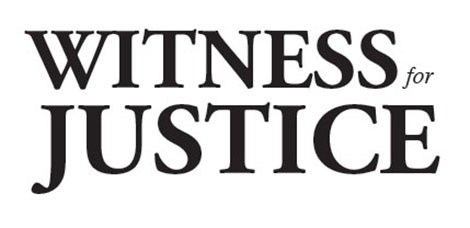Commentary: The Intersection of HIV Stigma and Hope
 Stigma kills.
Stigma kills.
Hidden in attitudes, in what’s not said aloud, in exclusion and revulsion, stigma thrives in silence. And it’s alive and way too well regarding HIV.
People who are living with HIV are keenly aware of the role stigma plays in their lives and in the spread of HIV. Too many people are still contracting HIV and living with it—largely because of stigma.
This is happening even as the June 2916 Edition of UNAIDS Science Now’s “HIV this month” asserts that “People who take their ART [antiretroviral therapy] effectively and in whom the virus is suppressed to undetectable levels are no longer infectious.”
We have the technology and treatment exists to stop the spread of HIV.
But …
Too many people still aren’t getting tested because of the stigma associated with having HIV—the stigma of being gay, and of being gay and:
- a person of color
- a person of faith
- a person who has immigrated to this country
- a person who in undocumented
- a person without medical insurance
- a person without a medical provider who is educated about HIV treatment
Because too many people aren’t getting tested, too many people aren’t getting treated.
Because too many people aren’t getting treated, too many people are still dying–because of stigma.
This idea is not new. From the days when Jesus walked the earth until now, people have born stigma for being poor, homeless, ill, and different due to religion, race, and socioeconomic status. Like Psalm 35:17, many of us cry out, “How long, O Lord, will you look on?”
As people of faith who work for justice, we are called to break the silence in which this stigma thrives. If we do not, we are complicit in its strength.
There is hope. Stigma is a human condition. It exists in our human minds, and is 100% curable. Its Kryptonite is reason, love, acceptance, and in the case of HIV prevention, a large dose of advocacy.
If you think you don’t need to advocate for HIV testing, prevention, and treatment, think again. In our community and our world, we are responsible for caring for those who live in it. Choose to do something today to make a difference.
- Get tested, and let people know you are getting tested.
- Go with a friend to get tested.
- Post about HIV testing locations near you.
- Encourage friends you know who are living with HIV to get care and to comply with their treatment regimen.
- Call Congress to encourage expansion of coverage of antiretroviral therapy.
- Encourage greater education of medical practitioners about available treatment.
- Educate youth, adults, and older adults about how HIV is spread and how to reduce the likelihood of contracting it.
Here’s what not to do. Don’t do anything. If you do nothing, your passivity is part of allowing stigma to continue to kill. Instead, do your part to suppress stigma to undetectable levels, so it is no longer infectious.
Amy Johnson is the UCC Our Whole Lives Coordinator.
View this and other columns on the UCC’s Witness for Justice page.
Donate to support Witness for Justice through the Neighbors in Need offering.
Click here to download the bulletin insert.
Related News
Resisting the Temptation of Numbness
2025 was a long year. For many of us, looking back over the past months repeatedly prompts the...
Read MoreCelebrating Diversity, Equity, Inclusion, and Accessibility
In the beautiful diversity of humankind, we are invited to celebrate diversity, equity,...
Read MoreThe Gifts of Advent
One of my favorite seasons of the year is Advent, which often falls on the first Sunday after...
Read More
